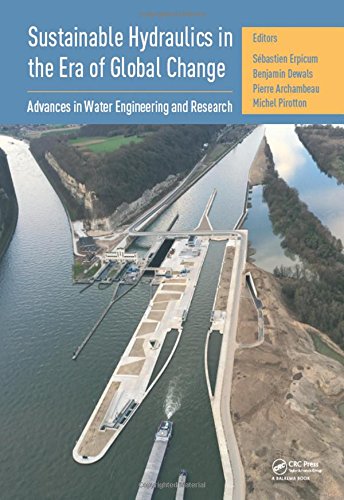

Most ebook files are in PDF format, so you can easily read them using various software such as Foxit Reader or directly on the Google Chrome browser.
Some ebook files are released by publishers in other formats such as .awz, .mobi, .epub, .fb2, etc. You may need to install specific software to read these formats on mobile/PC, such as Calibre.
Please read the tutorial at this link: https://ebookbell.com/faq
We offer FREE conversion to the popular formats you request; however, this may take some time. Therefore, right after payment, please email us, and we will try to provide the service as quickly as possible.
For some exceptional file formats or broken links (if any), please refrain from opening any disputes. Instead, email us first, and we will try to assist within a maximum of 6 hours.
EbookBell Team

5.0
78 reviewsIn an increasingly urbanized world, water systems must be designed and operated according to innovative standards in terms of climate adaptation, resource efficiency, sustainability and resilience. This grand challenge triggers unprecedented questions for hydro-environment research and engineering. Shifts in paradigms are urgently needed in the way we view (circular) water systems, water as a renewable energy (production and storage), risk management of floods, storms, sea level rise and droughts, as well as their consequences on water quality, morphodynamics (e.g., reservoir sedimentation, scour, sustainability of deltas) and the environment. Addressing these issues requires a deep understanding of basic processes in fluid mechanics, heat and mass transfer, surface and groundwater flow, among others.
Sustainable Hydraulics in the Era of Global Change: Advances in Water Engineering and Research unveils latest research achievements and innovations which were presented at the 4th European Congress of the International Association for Hydro-environment engineering and Research (IAHR), hold in Liege (Belgium). These new developments are based on state-of-the-art modelling technologies which are supported by the exponentially growing availability of data and computation power. Innovative synergies emerge between numerical modelling and experimental techniques, as well as field monitoring. Unique opportunities are created by multi-, inter- and trans-disciplinary approaches, bridging hydro-environment engineering and research with climate sciences, ecology, spatial planning, sociology.
Sustainable Hydraulics in the Era of Global Change: Advances in Water Engineering and Research will serve as a reference for postgraduate, professionals and decision-makers involved in various water-related sectors, such as hydraulic engineering, fluvial hydraulics, coastal engineering, water resources management, and renewable energy.